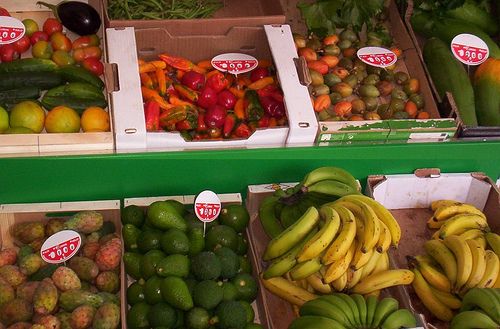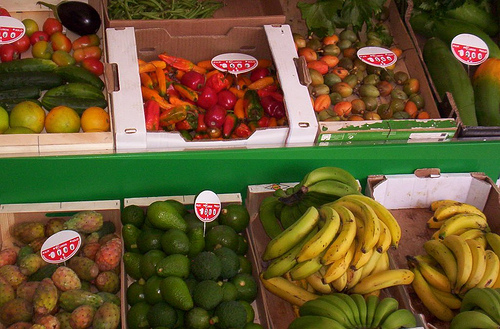Organic sector losses due to recession
Sales of organic products were down 5.9 per cent in 2010 compared to the previous year, according to the Soil Association, due to the financial strain from the recession. While being cautiously confident about this year’s market, they say this month’s budget will be a crucial factor determining the re-growth of organic sales in the UK.

 Sales of organic products were down by 5.9 per cent last year compared to the previous year, as producer’s fight against the effects of the recession, says report.
Sales of organic products were down by 5.9 per cent last year compared to the previous year, as producer’s fight against the effects of the recession, says report.
Latest figures, released in the Soil Association’s ‘Organic Market Report 2011’ showed the organic market made £1.73 billion last year, down from £1.84 billion in 2009 and record highs of £2.11 billion in 2008.
The figures were blamed on a combination of low wage inflation, high food-price inflation and rising unemployment, which the report says is squeezing family budgets.
In the organic sector this squeeze is very apparent as shoppers trade-down to less expensive options. However, the Soil Association is cautiously optimistic about 2011, as the rate of decline slowed towards the end of 2010.
Roger Mortlock, Soil Association deputy director, said: “There is powerful evidence that consumers who care about the diverse benefits of organic will stay loyal, even during these tough economic times. Given the current uncertainties in the UK and global economy, it would be rash to make any predictions for the future organic market.
“But the instability caused by climate change, population growth and resource depletion mean that business as usual in food and farming is not an option.”
Shoppers spend more than £33 million on organic products a week, and while sales through multiple retailers fell by 7.7 per cent last year, many supermarkets are feeling confident.
Waitrose and Mark’s & Spencer anticipate modest growth in 2011, while Tesco, Sainsbury’s, Morrison’s and the Co-operative predict level sales year on year.
Sales from independent retailers also fell last year, by 0.75 per cent to £479.8 million.
Production of organic vegetables and milk both fell last year. Poultry and egg production is predicted to be hit in 2011, due to faltering consumer demand, high feed prices and the implication of impending change in EU organic regulations.
Organically managed land decreased in 2010 by 0.6 per cent to 738,709 hectares. It now equates for 4.2 per cent of UK farmland. The number of UK organic producers also fell by 4.2% to 7,567 in 2010, from a record high of 7,896 the previous year.
Soil Association have previously reported Britain as the ‘lazy man of Europe’ when it comes to organic, with other European countries’ organic markets recovering better after the recession.
However, the report was not all bad news. The year saw some success stories too, with sales of organic beef up 18 per cent, organic baby food up 10.3 per cent and organic textiles up 7.8 per cent.
The report also found that all sector of society contribute to the organic market, with those in the more disadvantaged socio-economic groups accounting for a third of spending. 86 per cent of households buy organic at least some of the time and on average people bought organic 15 times in 2010, down from 16 times the previous year.
The Soil Association say although January’s VAT rise has had only marginal impact on the organic market, the impact of the cuts this month will be crucial in determining the strength of the recovery in the organic market.
Image: Secret Tenerife | flickr



